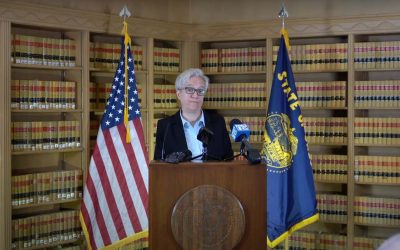The Oregon Senate is taking another look at a proposal to adopt standard time throughout the year, aiming to end the biannual clock changes. This comes after a legislative committee pushed forward a revised bill on Tuesday.
The latest twist in Senate Bill 1548 is that it would only kick in if California and Washington also decide to stick with standard time, ensuring the West Coast operates on the same schedule.
If the two states don’t switch by March 2034, Oregon's bill will be scrapped. Both states have considered similar legislation recently, but Washington's bill didn’t make it, and California's effort seems to be at a standstill.
An earlier version of the Oregon bill, lacking the requirement for action by neighboring states, was rejected in the Senate last week.
The Senate Rules Committee introduced this condition, passing it with a 4-1 vote. Senator Tim Knopp from Bend was the lone dissenting vote.
Senator Bill Hansell, who represents an area close to Washington, shared that the inclusion of this trigger changed his mind. He highlighted the importance of staying in sync with Washington, especially for communities in his district that do business across the state line. Hansell expressed his support for the bill with the new provision in place.
Senate Majority Leader Kate Lieber and Senator James Manning, both Democrats, voted to move the bill forward but have not fully committed to supporting it on the Senate floor, citing concerns about the bill's long-term implications.
Senator Elizabeth Steiner, a leading supporter of the bill and a medical professional, emphasized the health benefits of eliminating daylight saving time. She argued for the importance of maintaining a consistent schedule for the sake of public health.
Oregon would join Hawaii and Arizona in not observing daylight saving time if the bill passes. It's noteworthy that Oregon's Legislature approved permanent daylight saving time in 2019, but this requires federal approval and hasn’t progressed.
The debate over standard versus daylight saving time isn’t new. Advocates for permanent standard time point out the drawbacks of daylight saving time, including increased risks to children walking to school in the dark.
The decision to switch to permanent standard time doesn't need Congress's approval, making it a simpler path forward.
Regardless of the bill's fate, daylight saving time will start at 2 a.m. on March 10 this year. This ongoing discussion reflects a broader conversation about the best way to manage time in Oregon, with considerations for health, business, and coordination with neighboring states at the forefront. This update is based on information from The Oregonian.













